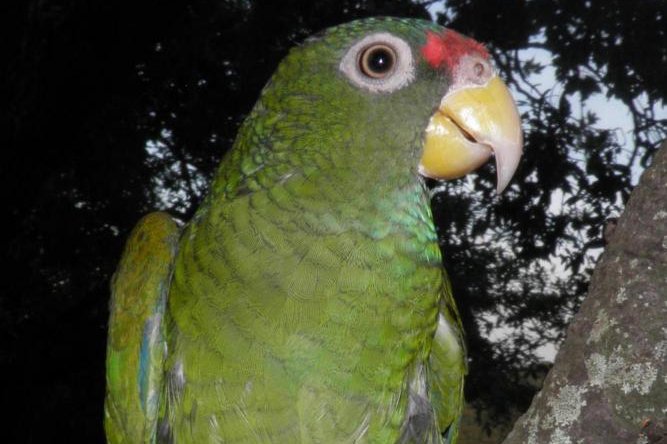The blue-winged Amazon parrot is distinguished by blue covert feathers and a uniquely green crown. Photo Courtesy Tony Silva/PeerJ
June 27 (UPI) -- Scientists have identified a new parrot species living on Mexico's Yucatan Peninsula. Researchers believed the blue-winged Amazon parrot diverged from its closest relative, the white-fronted parrot, about 120,000 years ago.
Ornithologist Miguel A. Gómez Garza first noticed the blue-winged Amazon parrot while doing field work in 2014. Garza was initially struck by the parrot's unique color pattern, but the species also boasts a uniquely loud, short call.
In a new paper describing the species -- published this week in the journal PeerJ -- researchers say the parrot's shape and behavior also set it apart from its closest relatives.
The parrot species, Amazona gomezgarzai, is named for its blue covert feathers. The parrot also features a green crown. Most Amazon parrots boast a blue crown.
Though the new species doesn't hybridize or mate with the Yucatán Amazon parrot or white-fronted Amazon parrot, all three species share habitat on the peninsula.
Researchers said the species' call is loud, short and sharp during flight, but longer and mellower while perched.
Like its relatives, the species is a strict herbivore, mining the tree canopy for seeds, fruits, flowers and leaves. The parrots form flocks of roughy 12 birds, and mates often remain monogamous pairs.
DNA analysis of the blue-winged Amazon parrot suggests the species split and evolved from the white-fronted parrot lineage about 120,000 years ago. The species is a fresh branch on the parrot family tree.
Researchers said the parrot's limited habitat range and relatively small population make the species a conservation priority. The blue-winged parrot currently enjoys no protections.















